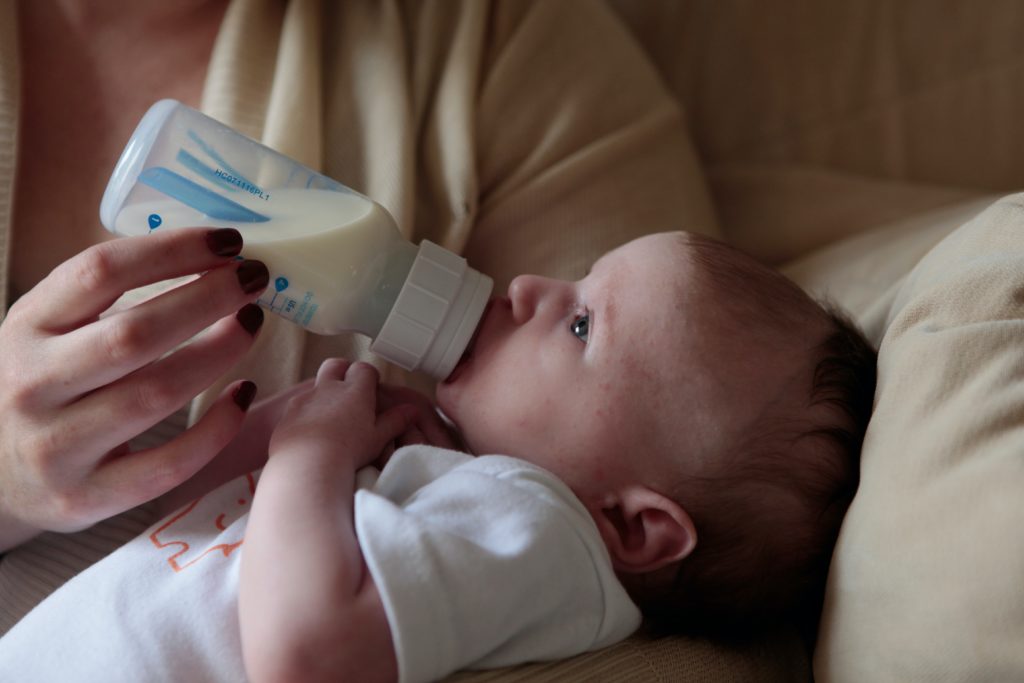
Published July 13, 2022
The current national baby formula shortage has sparked outrage at the Biden administration and particularly the FDA, which shut down a major American baby formula manufacturing facility. Americans want high-quality baby formula, plus every other FDA-regulated product.
Ironically, it is likely that contamination and other quality-control shortcomings are much more common with other FDA-regulated products from overseas than with the products that sparked the FDA’s actions, but we just don’t know about them. That’s because nobody—including the FDA—is making any effort to prospectively test products from other countries before they reach the consumer.
It wasn’t always this way. Less than two decades ago, North America and Europe very reliably manufactured virtually all FDA-regulated products, including generic pharmaceuticals, lest the manufacturers risk their jobs and licensure. But then health-care economics changed. As with many other consumer items, first India and then China undercut our domestic pharmaceutical manufacturing by offering lower-cost labor and manufacturing with the added benefit of a near-total absence of FDA oversight.
Case in point: In 2004, the last plant in the United States to manufacture the key ingredients for penicillin closed, transferring their production overseas to save on costs and work in a less FDA-regulated environment. It is unconscionable that the United States can no longer independently manufacture its own penicillin. Let’s hope the same will not occur for baby formula.
Abbott, the largest manufacturer of baby formula in the USA, has cooperated with the FDA and the CDC in conducting a thorough investigation. Today, we are told that all investigating parties have concluded that the bacteria-tainted baby formula did not originate from the Abbott facility.
In a long series of tweets, which are worth reading through, Abbott affirms that: “A comprehensive investigation by Abbott, FDA and CDC found no evidence that our formulas caused infant illnesses.” Despite these conclusive findings, the Abbott plant still remains closed at the behest of the FDA.
Approximately 75% of US parents and caregivers rely on baby formula to meet the nutritional needs of infants up to 6 months of age. The shortage has disproportionately impacted low-income families, infants and babies that require specialty formulas.
Abbott appears to be another victim of the disproportionate targeting by the FDA of the few remaining domestic manufacturers of FDA-regulated products. Since COVID-19, the FDA still hasn’t fully resumed inspections of drug-manufacturing plants in China and India. Instead, the many inspectors otherwise sitting idle have focused their ire on the few remaining domestic FDA-regulated manufacturing plants. Shutting down FDA-regulated facilities always seems to happen a lot faster than reopening them, even if FDA accusations are unfounded—as Abbott has abundantly made clear.
Unequal FDA Inspection Standards
Unequal treatment of American facilities in favor of foreign facilities has been apparent to regulatory experts for decades. FDA-regulated facilities in the United States can be inspected by the FDA at any time and for any reason, whereas facilities located overseas are inspected much less often, with sometimes as much as seven years between routine inspections. On top of that, State Department rules force the FDA to announce official-business-related travel overseas and the exact purpose thereof, giving those facilities notice of “surprise” inspections and plenty of time to prepare.
These “staged inspections” are not reflective of the actual goings-on at these plants. Other countries may delay FDA inspectors’ visas by months or years at their whim or until the plants will meet inspection standards.
Even with the advantage of an advanced notice, Chinese and Indian manufacturers have continued to rack up violations for incompetence, profiteering negligence, and a general disregard toward the United States’ most basic manufacturing, sanitary, and quality-control standards.
Even worse: In spite of documented, repeated violations by overseas manufacturers, the FDA continues to rely on these foreign manufacturers for information on the quality control of the products they produce. Instead of conducting independent testing of these imported drugs, the FDA trusts the obviously unreliable Chinese and Indian manufacturers at their word.
Independent analyses have found that foreign-made drugs show a pattern of mislabeling, potency inaccuracy, and cancer-causing contamination of our critical medicines, but due to language and legal barriers, it is hard to pin down who is responsible, and parent companies face little or no consequences.
With such unfair treatment by the FDA, Abbott has an incentive to fire American staff and take its manufacturing plants overseas, where they will benefit from favored FDA treatment, lower costs, and fatter margins.
The Commonsense Solution
While the current system is unfair and favors overseas manufacturers, there is a simple solution. The FDA could perform independent quality-control checks on all foreign and domestically made FDA-regulated products before they get to drugstores, ensuring quality compliance.
The FDA should mandate real-time “release testing” (RTRT)—a term of art that refers to comprehensive testing of products—on every FDA-regulated item arriving at an American port of entry.
As senior advisor on drug safety to former FDA commissioner (2019–21) Stephen Hahn, I strongly advocated advancing quality-control measures, such as RTRT, for all FDA-regulated products domestic and foreign.
In fact, the FDA already has a fully equipped staff to do this. Specifically, Michael Kopcha, a pharmacist who directs the FDA’s Office of Pharmaceutical Quality (OPQ), supervises more than 1300 employees, and is in charge of around a dozen testing facilities nationwide that are already fully capable of performing end-product testing on all FDA regulated items before they reach consumers today.
But Kopcha and other entrenched FDA career bureaucrats fought vehemently against my RTRT efforts during my appointment as senior advisor to the FDA commissioner on drug safety.
Implementing equal quality-control assurances, using common sense, and compelling OPQ to do its job will help ensure Americans maintain a high-quality domestic supply chain. To protect public health from overseas (and domestic) FDA-regulated products, the FDA should immediately begin performing release- testing on every product before it hits consumers.
If RTRT plus release testing had already been implemented, it could have ruled out Abbott’s culpability in the first place and prevented its plant shutdown from ever occurring.
Now, to cover up his incompetence in shutting down Abbott in the first place, Biden has activated the defense production act, which includes importing 70,000 lbs of formula from other countries. But we don’t know whether the FDA has ever inspected those overseas facilities or the FDA has any plans on conduction “release testing” at any point before it is sent off to American babies. Americans shouldn’t feel safer bearing that in mind.
The FDA’s current way of doing things is badly outdated and has proven to be politically unworkable, unreliable, and unsafe. Because of that, American babies can’t get the food they need.
In the meantime, the shortage in formula has necessitated hospital admissions for infants all over the United States.
Rep. Diana DeGette, D-Colo., chairwoman of the House Energy and Commerce Oversight and Investigations Subcommittee, really said it all when she referred to the baby formula shortage as “unacceptable, and worse, totally preventable,” further going on to tell the FDA commissioner that because of it “babies and children are suffering.”
What’s Biden’s FDA under the leadership of Commissioner Robert Califf going to do about it? Unfortunately, I think we all know the answer to that.
David Gortler, Pharm.D. FCCP is a Fellow at the Ethics and Public Policy Center whose work focuses on FDA oversight and accountability. Dr. Gortler is a pharmacologist and pharmacist and a Yale-trained bench research scientist in molecular biology with a subspecialty in the field of vascular medicine. He was a professor of pharmacology and biotechnology at the Yale University School of Medicine, where he also served at Yale’s Center for Bioethics, and was an FDA Medical Officer who was later appointed by the White House to serve on the FDA’s Senior Executive Leadership Team as senior advisor to the FDA Commissioner.
Image: Lucy Wolski on Unsplash












